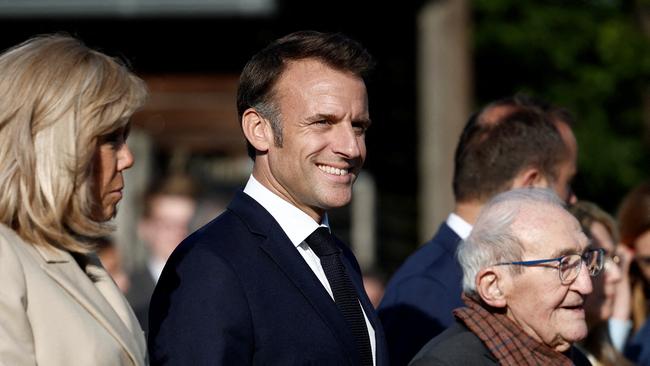Winds of change as EU vote kicks off
Most of the EU’s 27 countries will cast their votes on Sunday for the bloc’s parliament, with leaders fearful for the growing influence of the far-right.

Voters in The Netherlands have boosted the party of anti-immigration Eurosceptic Geert Wilders into second place at this weekend’s EU elections, an exit polled showed, after predictions of big far-right gains across the bloc at the four-day ballot.
Most of the EU’s 27 countries will cast their votes on Sunday for the bloc’s parliament, making the Dutch ballot a closely watched barometer of voter sentiment.
The projection from national broadcaster NOS had The Green/Labour alliance on eight seats, one ahead of Mr Wilders’ PVV Freedom Party.
While not the clear victory forecast for the extreme-right firebrand, the outcome still represents major gains from the single seat his party acquired after Brexit.
But the result might also provide some comfort for more centrist parties hoping to maintain their clear majority in the EU’s incoming 720-seat parliament.
Mr Wilders’ party had been riding high in the polls since his shock triumph at national elections last year saw it force its way into a coalition government for the first time.
He focused his EU campaign on promises to cut immigration, and that message appeared to resonate with many voters.
Surveys suggesting the far right overall could grab a quarter of the EU parliament’s seats have rattled its main groupings, the conservative European People’s Party and the leftist Socialists and Democrats.
French President Emmanuel Macron warned on Thursday the EU risked being hamstrung by a big far-right presence after the elections.
Current European Commission chief Ursula von der Leyen, seeking a second term, has opened the door to her EPP working with the far-right to ensure legislation is passed.
Ms Von der Leyen, a former German defence minister, has been courting Italian Prime Minister Giorgia Meloni, who heads the post-fascist Brothers of Italy party.
The EU recently overhauled immigration policies to toughen its borders and speed up deportations, but there are already calls from some quarters for an even stricter approach.
In Ireland, which started voting on Friday, migration and the asylum system have also emerged as leading issues.
Many candidates are running on an anti-immigration platform, either as independents or as members of various fringe nationalist parties that until now have enjoyed limited success at the ballot box.
With about 20 per cent of the population born outside the country and record levels of asylum-seekers arriving in Ireland this year, anti-migrant sentiment has escalated.
The main question, though, remains whether the centre-right Fine Gael of Prime Minister Simon Harris will win a bigger vote share than the main opposition party Sinn Fein, with local elections also held the same day.
Support for the leftist-nationalist Sinn Fein has declined sharply in the past year, with its progressive and pro-migration stands appearing at odds with many of its core working-class voters.
AFP



To join the conversation, please log in. Don't have an account? Register
Join the conversation, you are commenting as Logout